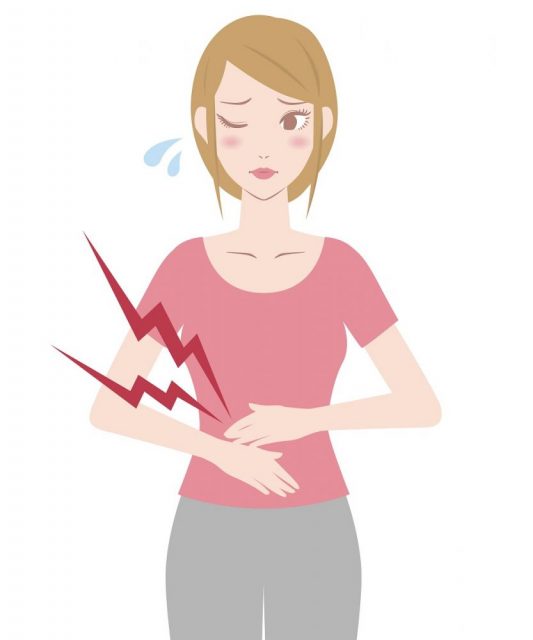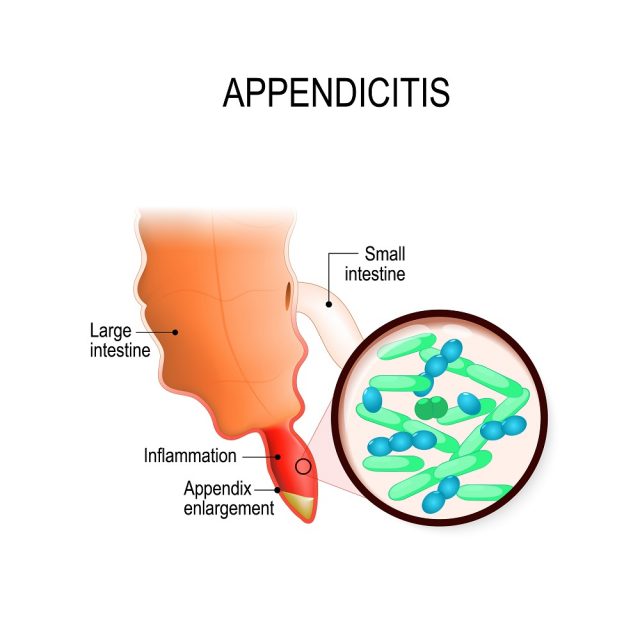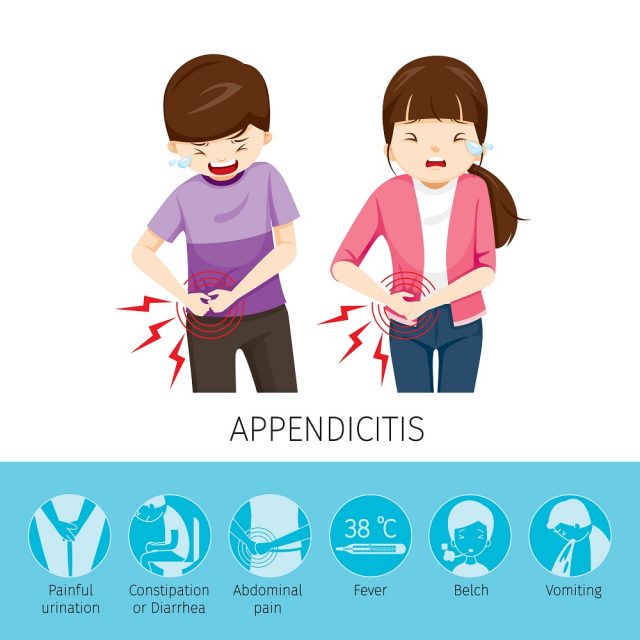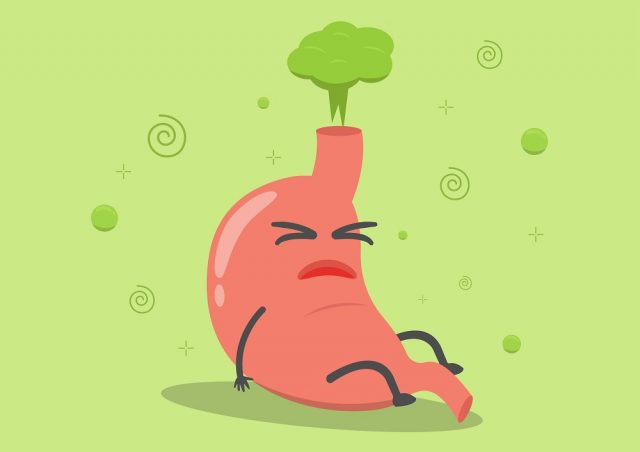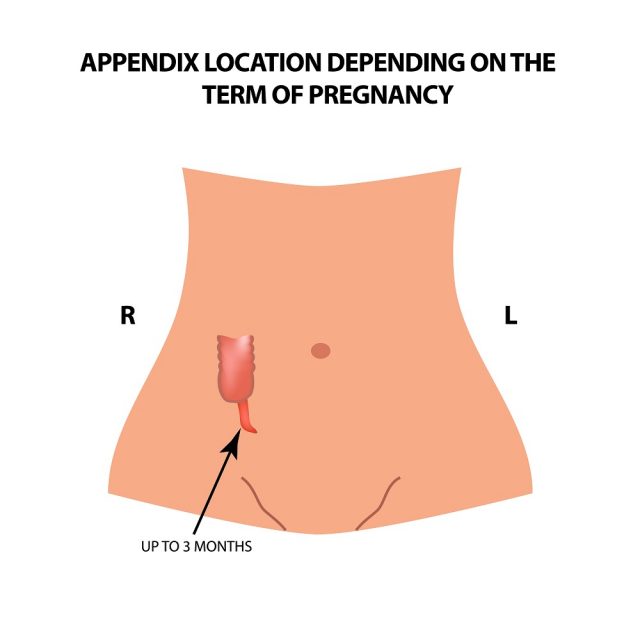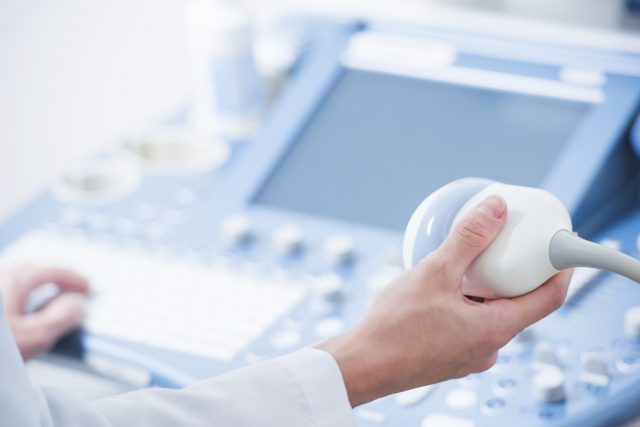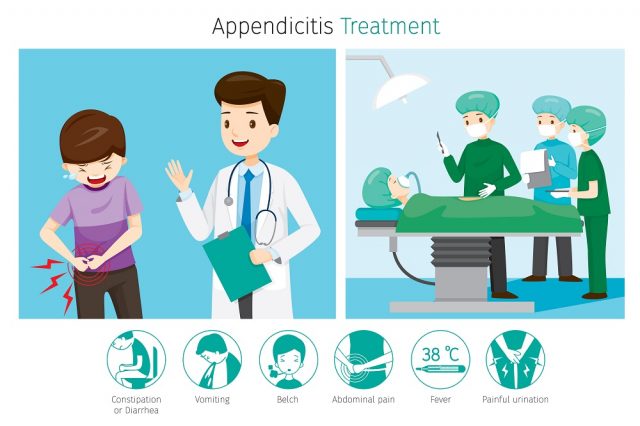Appendicitis Symptoms In Women
An obstruction or blockage in the appendix can cause appendicitis that is actually defined as infection and inflammation of the appendix. This unwanted blockage may cause a buildup of parasites, mucus and fecal matter. Also, in this state of body, the bacteria inside organ start multiplying very fast and the appendix may soon become swollen and irritated, ultimately leading to the condition named as appendicitis.
Note that appendix is actually a 3 ½ inch long tissue tube that extends up to large intestine; it is present in a lower right portion of the abdomen. Although the appendix is found inside the human body as a part of the gastrointestinal tract, it is considered as a vestigial organ. It does not play any considerable role in the normal living. Some researchers reveal that appendix plays a major role in balancing gut immunity; however, experts say that we can easily survive without any trouble even after removing the appendix from our body.
In case if inflamed appendix does not receive right treatment on time, it can rupture any time and the dangerous bacteria will reach abdominal cavity. This condition can further lead to a serious infection name as peritonitis and it needs immediate medical treatment. It is important to know that ruptured appendix is a life-threatening issue but it happens rarely during first 24 hours of appendicitis symptoms so one can avail right treatment on time. But it is very important to analyze early symptoms of this disease otherwise it may even cause sudden death of the patient.
Possible causes of Appendicitis
As already discussed, this severe medical health condition is usually generated due to blockage of appendicitis by some food waste or hardened feces. In case if any unwanted substance gets trapped in the area, it may also cause the development of bacteria that can ultimately lead to some infection and organ inflammation.
It is not compulsory to have appendicitis trouble due to any foreign particle, sometime this condition may also arise due to swelling in lymphatic tissue present on appendix wall that may lead to unwanted blockage. Such blockage or obstruction is responsible for the development of viruses, parasites, fungi, and bacteria. In such situation, appendicitis can get filled with pus and it may cause inflammation. There are chances to have appendicitis due to some viral infections in the gastrointestinal region. Other causes of appendicitis include injury or trauma to the abdominal area, development of calcified deposits and intestinal worms.
Symptoms of Appendicitis in a woman
-
Pain in the Belly-Button:
Patients feel the pain of appendicitis in the lower right portion of the abdomen. Generally, the very first symptom of discomfort caused by appendicitis is discomfort near belly button that may slowly move to lower abdomen area. Ladies can also experience pain at different points of the abdomen. This pain becomes unbearable when you try to move your legs, sneeze, cough or get jarred in a bumpy car.
-
Intense pain:
Once the pain of appendicitis reaches lower abdomen area, it may become quite intense. Patients reveal the seriousness of this pain like they have never suffered any pain before this throughout their life. This pain can awake the patient if she is sleeping and the severity of this pain keep on increasing with hours.
-
Low-grade chills and fever:
Generally, the fever is considered as a normal sign of mild infection and most people ignore it. But note that when fever is combined with chills, it may happen due to appendicitis. In this condition, the patient may feel cold even if you put so many blankets on her. Several studies and medical health experts reveal a combination of cold and hot as a common sign of appendicitis and it may also be accompanied by stomach pain. However, a fever up to 100 degrees with stomach pain is not related to appendicitis but if it rises up to 103 degrees with severe pain, it is time to meet doctor as the patient is suffering from appendicitis.
-
Nausea, vomiting, and loss of appetite:
Appendicitis does not cause projectile vomiting rather it affects the patient for several days with a feeling of low appetite, mild nausea accompanied by vomiting. Note that if a bug in your stomach recovers within a day or two, there is nothing to feel worried about. However, if you are suffering from this trouble from few days and it is getting worse, it is important to take medical help. In case if you are vomiting for more than 12 hours or your diarrhea is not recovered for a couple of days, there are chances of appendicitis.
-
Diarrhea or constipation:
Although these symptoms are not much severe, they last longer and generally arrive after the abdominal pain. Those who have mild diarrhea without much mucus in it along with some abdominal pain on the lower right side, it is better to call your doctor.
-
Bloating and gas:
If you eat too much fried food, many slices of pizza with few beers; there are chances of suffering bloating. But in case if you are suffering this pain from several days and it is worsening with time, it is important to seek some medical help on time. Some patients after getting affected with appendicitis may suffer bowel pain as well as some discomfort while passing gas.
-
Tenderness:
If people suffering from appendicitis push the lower right portion of their abdomen, they may suffer some pain while releasing the pressure and it also causes rebound tenderness. If you feel so, do not push it again and again otherwise it may cause serious complications. If you suffer rebound tenderness along with other symptoms like nausea, fever, and vomiting etc. it is better to consult professionals.
-
Inability to move:
Due to severe abdominal pain, many patients find it hard to move. They will rather curl on bed or couch like a ball while waiting for some relief. The condition may get worse if you take deep breaths, sneeze or a cough.
-
Symptoms during pregnancy:
There are chances of suffering acute appendicitis at the time of pregnancy. In this case, the diagnosis becomes more difficult because the appendix is moved from its actual position due to enlargement of the uterus. The pain may also not stay in the lower abdomen; rather a pregnant woman may feel it anywhere in the right part of the abdomen. Sometimes, people misinterpret this pain as early labor. The symptoms associated with this condition include vomiting, nausea and lack of appetite. Although appendicitis itself does not pose much risk, the condition may become serious if it ruptures inside. It may affect both the mother as well as the baby.
How can appendicitis be diagnosed?
It is little tricky to diagnose appendicitis. As the symptoms of this disease are quite similar to many other health issues like intestine infections, gastritis, Crohn’s disease, urinary tract infection and gallbladder infection, so most people find it difficult to notice them on time. However, once the symptoms are well understood by a physician, the test for diagnosis may include:
- CT scans and ultrasounds.
- Blood test to check if your body is capable enough to fight infection or not.
- Rectal exam.
- Urine test to know if a person is suffering from urinary tract infection.
- Abdominal exam to know the condition of infection.
Treatment for Appendicitis
The most commonly followed and trusted treatment for appendicitis is surgical removal of the inflamed organ. Doctors may prefer to use laparoscopic surgery or open surgery. In case of laparoscopic surgery, doctors make so many small incisions in the abdomen area that through which they insert essential surgical tools to remove the appendix. Along with special tools, a laparoscope is also inserted into abdomen that contains a tiny video camera. It can provide complete details about surgical process happening inside the body with the help of magnified images.
Once the laparoscopic surgery is completed, a person needs very less time to recover but in case of open surgery, they need more time to heal. The open surgery is usually followed when the appendix ruptures inside body. Professionals recommend some pain relief medicines to recover the discomfort caused by appendicitis. If the symptoms of the disease are not noticed at right time and the inflamed organ ruptures inside, it may cause serious issues. This condition can spread the infection to many other sections of the abdominal cavity as well. It can further lead to the formation of an abscess in the body and if it tears down, it leads to a widespread infection. IN order to avoid all such complications, it is better to consult professionals on time so that inflamed organ can be removed before it ruptures.
Note, it is not good to take any over the counter medication to treat symptoms associated with appendicitis. Studies reveal that laxatives and enemas can lead to fast rupture of the appendix. Also, the pain medications make it difficult for a doctor to apply quick diagnosis for the inflamed appendix.

